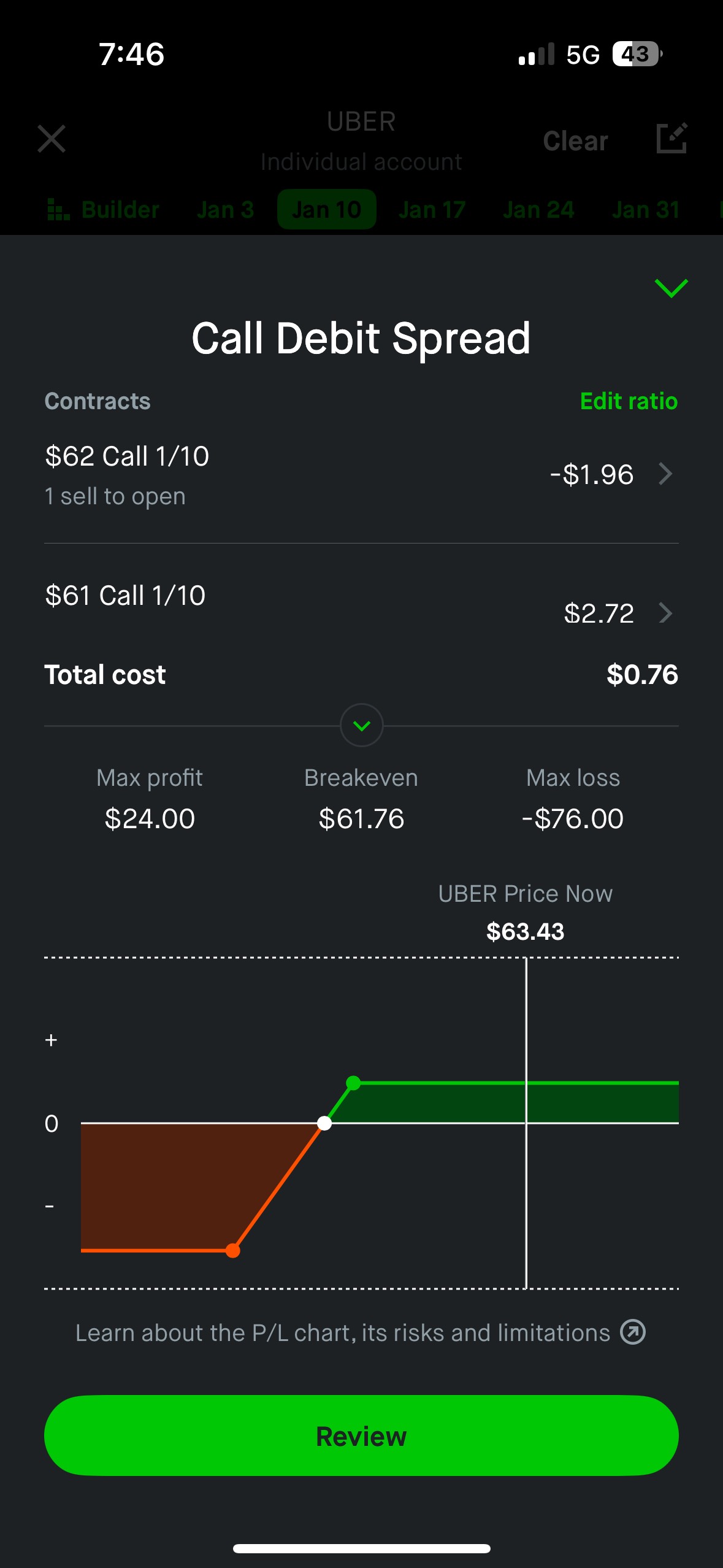🔢 The Numbers (No Pressure, Just Math)
Let’s Break It Down📈
✅ Start with $1,300
✅ Grow it by 30% per trade
✅ Repeat 17 times
✅ End goal? $112,455.50
📊 Here’s how %30 compounds after each trade:
| Trade # | Balance After Trade |
|---|---|
| 1 | $1,690 |
| 2 | $2,197 |
| 3 | $2,856.10 |
| 4 | $3,712.93 |
| 5 | $4,826.81 |
| 6 | $6,274.85 |
| 7 | $8,157.31 |
| 8 | $10,604.50 |
| 9 | $13,785.85 |
| 10 | $17,921.61 |
| 11 | $23,298.10 |
| 12 | $30,287.53 |
| 13 | $39,373.79 |
| 14 | $51,185.93 |
| 15 | $66,541.71 |
| 16 | $86,504.23 |
| 17 | $112,455.50 |
😎 Why Spreads?
Spreads let you maximize potential returns if you can spot trends on a stock. Perfect for controlled growth.
🤔 What’s the Catch?
As your account grows, placing larger trades becomes trickier. Bigger accounts need smarter strategies, more discipline, and (let’s be honest) a bit of luck.
📈 Example of a 30% Gain with a Spread
Let’s say you are bullish on $UBER and believe the stock price will end above $62 by Jan 10th 2025.
If you do a $61/$62 spread, it pays $24 for every $76 invested.
✅ If UBER closes above $62 → You earn 31.5% on your investment!
❌ If UBER is below $61.76 at expiration → You lose 100% of the investment.
🔹 You can close early for a smaller profit if the trade moves in your favor.
🔹 If the trend goes against you, you can close early to cut losses.

🔥 The Good & Bad of Spreads
✔ Good: You can be bullish or bearish and bet on your own price target by a set date.
✖ Bad: Timing is crucial—if you’re wrong, you can lose 100% of your investment.
Have you tried spreads before?
